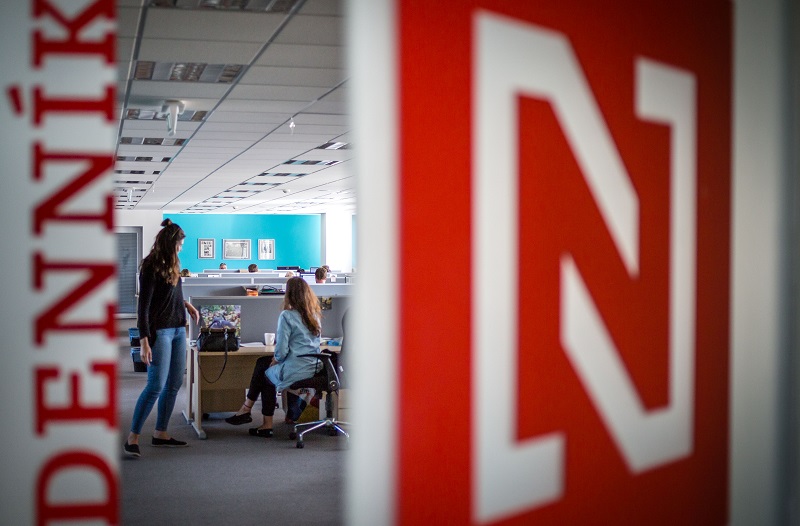Slovak authorities must thoroughly investigate the recent surveillance of Denník N journalist Monika Tódová and swiftly identify those responsible, the International Press Institute (IPI) said today.
IPI, a global network of editors, media executives and leading journalists for press freedom, warned the surveillance of a prominent Slovak journalist bore alarming echoes of the surveillance campaign that has been linked to the murder of investigative journalist Ján Kuciak in 2018.
Tódová was monitored and photographed by a man in an SUV for at least two days at the beginning of January while she was living with her family in a cottage in the High Tatra Mountains in northern Slovakia. The car remained parked outside the property for eight hours.
The journalist was also watched by another unknown man around the same time who was stationed outside the cottage in a car with a Bratislava number plate. The same car was spotted following Tódová after she returned to Bratislava.
The suspicious behaviour was reported to the police at the time and one of the men was given a disciplinary fine for breaking curfew. The Regional Directorate of the Police Force (PZ) confirmed that the department of the High Tatras PZ had launched a criminal procedure for “dangerous surveillance” and was currently analyzing available information.
“Given the dark history of the surveillance of journalists in Slovakia, it is essential that politicians, prosecutors and police treat this surveillance of Monika Tódová with the utmost seriousness”, IPI Deputy Director Scott Griffen said. “We welcome the prompt action taken by law enforcement to open a criminal procedure and urge them to ensure all efforts are made to properly investigative the case.”
He added: “Both those responsible and those who ordered the surveillance must be quickly identified and their motivations established. We call on the General Prosecutor’s Office (GP) of the Slovak Republic and the attorney general should ensure this case is given top priority. The tragic killing of Jan Kuciak in 2018 remains a shocking reminder of the need for cases of coordinated surveillance operations to be comprehensively investigated.”
Dark history of surveillance
Between March 2017 and February 2018, former intelligence agent Peter Tóth is alleged to have conducted a massive, illegal surveillance operation on journalists in Slovakia.
The surveillance was allegedly carried out on the orders of the disgraced businessman Marian Kočner, who was later charged with ordering the murders of Slovak journalist Ján Kuciak and his fiancée, Martina Kušnírová.
In September 2020 Kočner was acquitted on the basis of reasonable doubt as judges said there was not enough evidence to rule conclusively that he had ordered the hit.
The information gathered was allegedly to be used by Kočner to discredit journalists, including those working for SME, Aktuality.sk, Trend and Denník N. The surveillance group closely monitored the targets’ personal lives and daily activities. SME also said members of the group sat in a parked car every day in front of the newspaper’s office to follow one of its journalists.
SME also reported that the surveillance team obtained extensive access to official police databases, collecting private data on journalists ranging from vehicle license plates to tax information.
Denník N is a Slovak daily newspaper and a news website which was founded by former members of the editorial board of SME in 2014. It is not the first time that Tódová has been monitored in connection with her journalistic work.
Alarming news from #Slovakia. @dennikN editor Monika Tódová was surveilled & photographed by an unknown man in an SUV during Christmas holiday and at #Bratislava home
Slovak authorities & @SlovakPoliceUn must conduct a swift and thorough investigation
https://t.co/z2juEAviMh— IPI – The Global Network for Press Freedom (@globalfreemedia) January 14, 2021
This statement by IPI is part of the Media Freedom Rapid Response (MFRR), a Europe-wide mechanism which tracks, monitors and responds to violations of press and media freedom in EU Member States and Candidate Countries.

